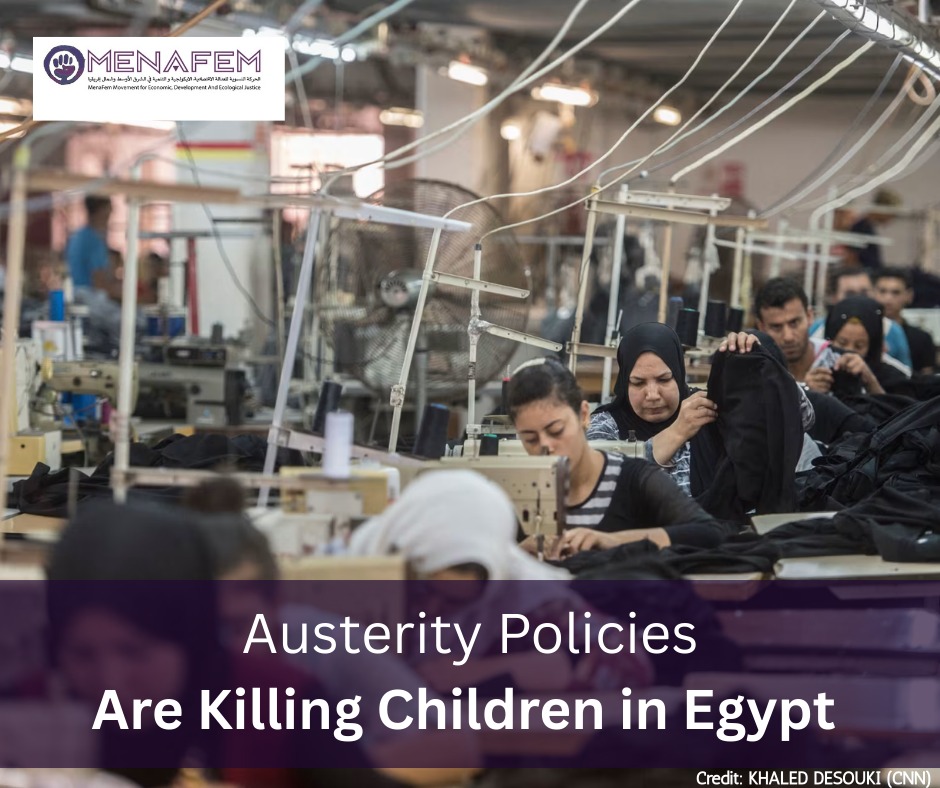Austerity Policies Are Killing Children in Egypt
The tragic incident at “Linen Group textile” and furnishings company in Alexandria governorate, where an infant died in the arms of one of the company’s female workers after she was denied leave and confined inside the factory, is a stark revelation of the violent face of the direct consequences of austerity policies and economic pressures on workers, particularly women workers. Austerity measures are not abstract numbers in state budgets; they translate into deadly practices in daily life. Egypt is burdened with an external debt exceeding $ 170 billion in 2024, forcing it to comply with the International Monetary Fund’s conditions. These conditions entail further withdrawal of the state’s role by cutting public spending, freezing wages, and reducing subsidies for basic services.
This incident occurred within the context of a wave of labor strikes that Egypt has experienced over the past year. The demands of these strikes have centered on minimum wage, paid leave, and timely salary payments. This series of strikes demonstrates that the deterioration of workers’ conditions is not the result of limited administrative shortcomings, but rather part of a larger economic and political system that adopts austerity policies, policies that shrink rights, increase the precarity of the working class, and empower private companies to exploit workers with low wages and inhumane working conditions, without genuine state oversight. Even though the essence of these demands is rooted in clear legal rights, state institutions have limited their intervention to attempts at breaking up some of these strikes, even those aimed merely at ensuring the minimum wage. This reveals a structural bias towards employers and against the labor movement in Egypt, reflecting unequal and marginalizing power relations vis-à-vis the poorest and most vulnerable classes.
These developments also coincide with the passage of the new Labor Law, which in turn has failed to address the precarity of workers’ conditions, provide sufficient protection for women workers, or guarantee the consistent enforcement of minimum wage standards. This reflects the ongoing dominance of market logic and the state’s retreat from ensuring rights in favor of profitability. Women, in particular, bear additional burdens in a hostile and unjust work environment, where the intersection of gender with economic and social class intensifies their exclusion from any effective social protection network and doubles the risks of economic and social violence against them. The law fails to guarantee protection against the daily violations they face, putting the lives of working women and their children at direct risk.
These successive incidents point to the urgent need to reconsider austerity policies and the so-called legislative reforms, which must include ensuring the timely payment of wages, enforcing the minimum wage, respecting paid leave, and providing safe working conditions. It also requires the inclusion of workers’ representatives, both men and women, in monitoring and enforcement mechanisms, and the reaffirmation of their rights to organize and unionize. Furthermore, it highlights the necessity of holding the state and corporations accountable for their direct responsibility in these flagrant violations, and of activating the legal and constitutional safeguards that ensure workers’ rights, particularly those of women and working mothers, in the face of market logic that thrives on exploiting workers’ precarity for profit.


